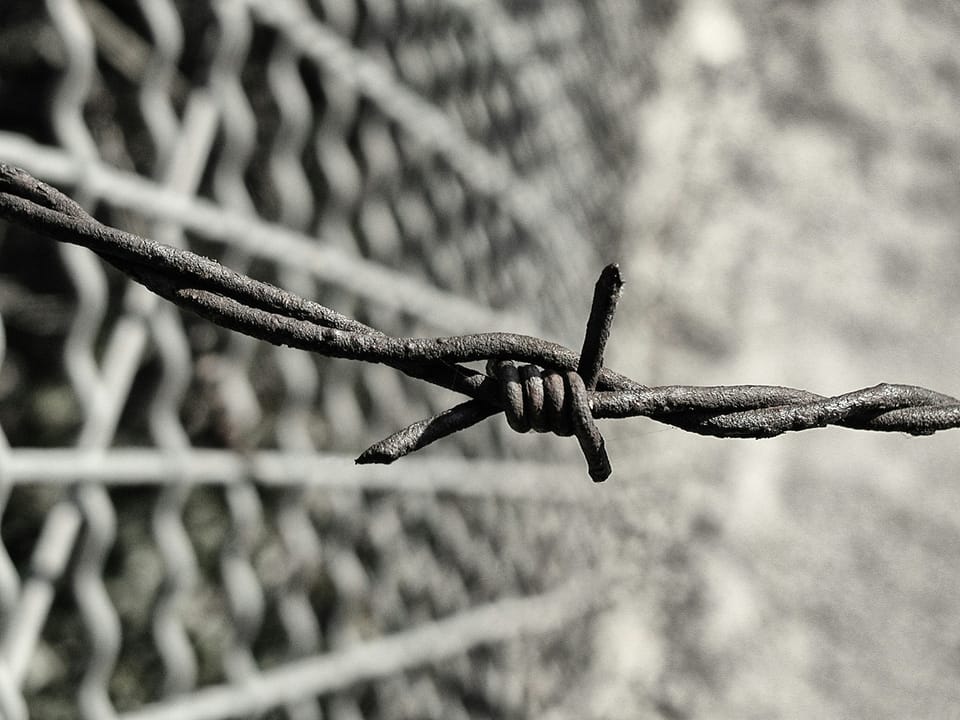
Photo by Marco Bianchetti on Unsplash
The negotiations that will, in the end, bring any form of (admittedly imperfect) just resolution to the Palestinian-Israeli conflict—whether that be the increasingly implausible two-state solution, a secular one-state solution, or some form of confederacy1—will require each side to accept the fact that some aspects of the other’s narrative will be irreconcilable with their own. This doesn’t mean, of course, that the two sides have nothing in common. Palestinian and Israeli parents who have lost children, for example, started the Parents Circle-Families Forum out of their shared commitment that no one else should suffer the loss of a family member. As this essay by Susan Dominus in the The New York Times Magazine shows, however, once you dig beneath the surface of that shared experience, horrific as it is, the ways in which it is impossible to “both sides” the conflict quickly come to the surface.
Just as there can be no question that Israel is an occupying power and that any form of Palestinian resistance, including the October 7th attack by Hamas, needs to be understood in the context of that occupation; and just as there can be no question that Israel’s current campaign in Gaza is in keeping with, not an exception to, the policies and practices of that occupation; there can be no question that, whether you call Zionism a settler-colonial ideology or identify it, I would say more accurately, as a form of nationalism (because I do think that difference is meaningful), the Jews who founded Israel behaved like colonizers. Nor can there be a question that the Jews who’ve governed the country since 1948 have, some more and some less explicitly, continued that behavior. If you say that you support Israel, but you are unwilling to come to honest terms with that history, if you are willing to use accusations of antisemitism to obscure that history, then we are not on the same side.
Similarly, you and I are not on the same side if, implicitly or explicitly, you hold all Jews uniquely responsible for Israel’s behavior, or if the anti-Zionism you espouse when you declare your solidarity with the Palestinians does not distinguish between the political Zionism of the State of Israel and what Zionism means within the antisemitic world view where a core component of Hamas’ charter finds its roots. More to the point, if these are the positions you hold, then the side I am on will inevitably include anyone who is Jewish, even if they support the State of Israel without qualification. They need to be held accountable for that position, but they do not therefore deserve to be the targets of antisemitism.
I am, in other words, talking here about two very different areas of concern, one that has to do with the oppressive and murderously unjust behavior of a nation state, and one that has to do with an ideology that targets Jews worldwide, regardless of what their position on Israel and Palestine might be. Unfortunately, however, because the Palestinian-Israeli conflict is among the few contexts in which it is possible, outside of Jewish circles, to insist that antisemitism needs to be part of the discussion, these areas of concern all too often become conflated. As a result, my self-interest as a Jew in calling out antisemitism gets pitted against the interests of the Palestinians on whose behalf opposition to the Israeli occupation is absolutely necessary.
There is, in other words, a divide-and-conquer strategy at work here, and it’s worth asking whose interests it serves. For now, since answering that question would require an essay (and likely more) unto itself, all I will say is that I am not on their side either. Rather, I stand with those whose opposition to the Israeli occupation and solidarity with the Palestinians is accompanied by an explicit and proactive stand against both antisemitism and that kind of divide and conquer strategy. Otherwise, it does not matter what we may nominally agree on—whether that happens to be opposition to the occupation or Hamas’ antisemitism and all it represents—we simply are not on the same side.
Thanks for reading this series. I have turned comments on. If you would like to let me know what you think by responding directly to the post, rather than emailing me, I’d love to hear from you. Also, if you find my newsletter valuable, please consider forwarding it to others who might do so as well. I am trying to grow my mailing list. Thank You!
Thanks for reading It All Connects...! Subscribe for free to receive new posts and support my work.
Peter Beinart wrote about this question a couple of years ago in Jewish Currents ↩
A poet and essayist, I write about gender and sexuality, Jewish identity and culture, writing and translation. My goal? To make connections that matter. I also help other writers do the same.





